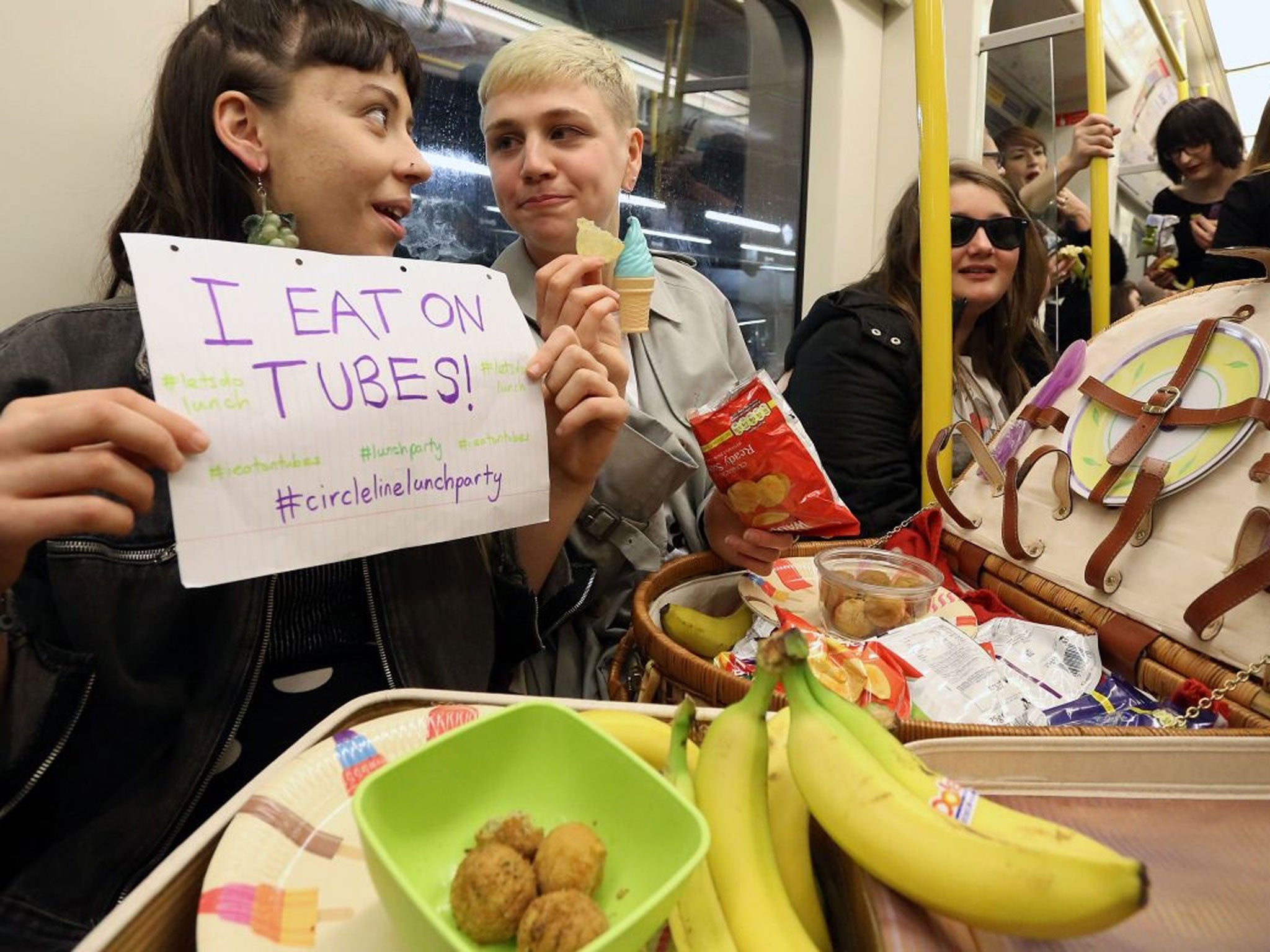Women Who Eat on Tubes: spare us from your gender policing
We organised a picnic protest against the Facebook group because women should not feel they must be pretty little things with no ugly human impulses

Your support helps us to tell the story
From reproductive rights to climate change to Big Tech, The Independent is on the ground when the story is developing. Whether it's investigating the financials of Elon Musk's pro-Trump PAC or producing our latest documentary, 'The A Word', which shines a light on the American women fighting for reproductive rights, we know how important it is to parse out the facts from the messaging.
At such a critical moment in US history, we need reporters on the ground. Your donation allows us to keep sending journalists to speak to both sides of the story.
The Independent is trusted by Americans across the entire political spectrum. And unlike many other quality news outlets, we choose not to lock Americans out of our reporting and analysis with paywalls. We believe quality journalism should be available to everyone, paid for by those who can afford it.
Your support makes all the difference.This week the media has been saturated with discussion about the Facebook group Women Who Eat on Tubes, which encourages people to contribute secretly captured images of women eating for fans of the page to comment on.
As a female Londoner who is busy enough to have to eat on the Tube fairly often, I felt directly targeted - so in response to the page Alexis Calvas and I threw a lunch party on the Circle Line and have been caught up in the debate.
Many defenders of the group and groups like it have been reminding us that the moment you are in a public place you have no right to privacy. I don’t take that as a defence, I take it as a defeatist attitude to a problem that should not be accepted and embraced, but questioned and avoided. We know CCTV and ‘security’ constantly monitors us, this is problematic in itself.
When members of the public begin to take the policing into their own hands then that is a big problem too. Of course, groups like this are not policing crimes but instead policing norms and not with public prosecution but public shaming.
In this case, people want to see pictures of women eating either because it puts them in a vulgar position, which contrasts with their prescribed gender role of pretty little things with no ugly human impulses, or because it captures them trying to hide the inherent vulgarity of eating proper food and stay pretty.
The founder of Women Who Eat on Tubes described his so-called ‘art’ project as showing women “like little mice hiding packets of crisps and biscuits in their bags and purses, slowly, secretly, guiltily raising each bite-sized morsel to their salty lips in the hope that no one's watching.” Well we do hope that no one is watching because we all police ourselves to some extent, even if we do not believe in these limiting and pointless norms, and nobody wants to know that there are thousands of people out there policing them too.
When it comes to eating, women feel particularly subjected to negative norms, which is why this group targets women in the first place and also why this became a feminist issue. I didn’t say our response was about feminism originally because, unfortunately, for people with little knowledge of feminism, it is a dirty word with a lot of negative connotations attached. It was the trolls and people defending the page who called us feminists and we had no choice but to embrace it because of course it is.
Feminism defends the rights of women not just for equality (so shut up about Tube Crush), but also defends her from the debilitating policing of gender, which is a problem for everyone. While women and those commenting on their behaviour continue to subscribe to the ridiculous norms that are meant to make us feminine, women continue to be valued for their beauty and gentleness, not for their strength and agency - and that is the problem.
Join our commenting forum
Join thought-provoking conversations, follow other Independent readers and see their replies
Comments